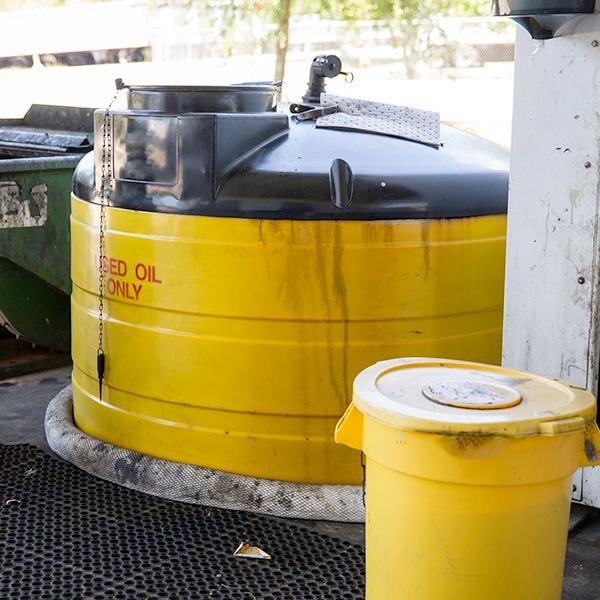Avoid the Risks and Costs of Fluid Disposal With a Full-service Lease

Regular maintenance of Class 8 vehicles requires replacing and removing fluids to keep vehicles running. Used fluids must be recycled or disposed of correctly and documented from cradle to grave to meet regulatory requirements. Additionally, customers are increasingly interested in monitoring their carbon output and documenting recycling efforts.
"Our customers' sustainability initiatives have bloomed exponentially," said Christopher Hawk, manager of environmental services for Penske Truck Leasing. "With our waste management processes, we keep track of the recycling of used oil to such a degree that we can ensure and quantify how much waste was diverted from landfills and how much CO2 emissions were avoided."
Used oil can be re-refined into lubricants, processed into fuel oils, and used as raw materials for the refining and petrochemical industries, the Environmental Protection Agency (EPA) reported. Re-refined oil must meet the same stringent refining, compounding and performance standards as virgin oil for use in automotive, heavy-duty diesel and other internal combustion engines, and hydraulic fluids and gear oils.
Documenting the fluid disposal and recycling process can be complicated, requiring both time and money. What's more, the companies that generated the waste can face penalties if fluids aren't disposed of properly. As part of its full-service leases, Penske handles all maintenance for its customers, as well as the disposal and recycling process of used fluids, creating a seamless process for fleets.
"With our oil vendors, we know exactly where our used oil ends up after being picked up at our shops. That enables us to track and generate reports on waste diversion and CO2 avoidance for this waste stream," Hawk said. "Some of our larger customers request or require us to report these metrics as part of their sustainability program for upstream and downstream vendors."
Disposal of Materials
All vehicle fluids, including oil, antifreeze and brake fluid, are considered regulated wastes, and the companies that handle them are considered waste generators. It is the waste generators' responsibility to manage the disposal of the fluids properly and track their disposal from cradle to grave, which includes ensuring there is a paper trail of how much was generated, how much was picked up, who picked it up, when it was picked up and where it went. To be compliant, records have to be maintained on-site for three years.
Because the burden is on the generator to prove the who, what, when, where, why and how associated with waste disposal, Penske has created a team to monitor the process. Penske performs financial and environmental compliance audits of all of its oil vendors that pick up disposed fluids across North America. That oversight allows Penske to monitor how the vendors manage the fluid waste once it gets into their hands. Even though the vendor has taken possession of it, the waste technically belongs to Penske. If a vendor mismanaged the fluids and disposed of them incorrectly, the burden is put back on the generator to ensure it is cleaned up, which could result in excessive costs as well as penalties.
In addition to carefully evaluating its vendors that collect waste, Penske provides specific spill-response training to its diesel technicians, so they know how to clean up and report an issue properly.
Specific State Requirements
Some states, such as California and Massachusetts, have additional requirements because they designate used oil as hazardous waste. Penske closely monitors specific requirements to ensure compliance.
The Role of Recycling
To reduce its environmental impact, Penske ensures that all of the used oil and metal filters go to facilities where they can be recycled, turning them from disposed waste streams to recycled waste streams.

